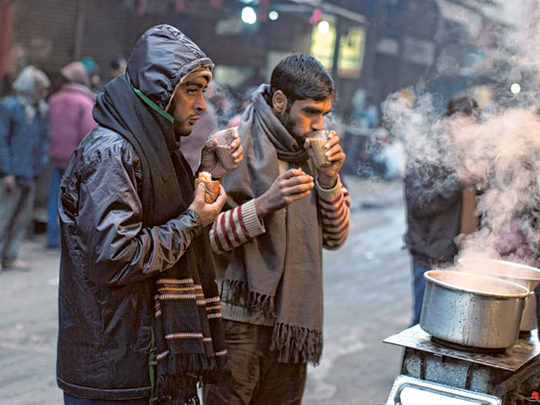
Lucknow: After a brief respite, chilling cold returned with a vengeance in Uttar Pradesh Thursday with icy winds sweeping most parts and the day temperatures falling sharply.
According to the Met Department, the day temperature in Lucknow registered 11.3 degrees Celsius, six notches below normal.
The chill was in sharp contrast to the warmer last few days when the sun shone bright and day temperatures climbed to 17 degrees Celsius.
According to reports received here, temperatures had plummeted in many places across the state Wednesday night, leading to the return of the chilly weather.
Muzaffarnagar at 0.6 degrees Celsius was the coldest place in Uttar Pradesh.
Kanpur, Lucknow, Bareilly, Moradabad and Meerut reeled under the biting cold.
Weather officials forecast a harsher winter, especially in western Uttar Pradesh and areas close to the national capital region.
Fog was likely to continue in most of the western parts and visibility was likely to come down to 50 metres, said officials.
Train and air traffic continued to be severely hit by the foggy conditions and more than 17 trains, including Duronto Express, Gomti Express, Swarn Shatabdi and Lucknow Mail, running between New Delhi and Lucknow were running late by more than four to six hours Thursday, railway officials said.
Meanwhile, New Delhi experienced its coldest day in 44 years amid a cold snap across northern India, the local weather office said on Thursday.
The maximum day temperature on Wednesday reached just 9.8 degrees Celsius (49.6 degrees Fahrenheit), the lowest since the winter of 1969 when records first began, an official in the local meteorological department told AFP, with a minimum of 4.8 Celsius.
There is expected to be little respite in the coming few days with the weather office forecasting that chilly conditions will prevail.
The unusual cold has been attributed to dense fog which has obscured the sun and disrupted airports and trains, as well as icy winds from the snowy Himalayas to the north.
Winter in the Indian capital, home to 16.3 million people, usually lasts through January before giving way to spring and summer, when temperatures regularly rise to 45 degrees.












